Product Featured
Model: AlphaTheta euphoniaRelease Price: $3,799 (contact by livechat, phone or email for discount)
Released: March, 2024
This AlphaTheta euphonia review was produced by David Michael at The Passionate DJ Podcast.
[/alert]Intro
When I think of rotary mixers, I think about delicate blending, long transitions, analog warmth, and a minimalist design that puts its entire focus on smooth mixing. But I also tend to think of them as fairly limited, in today’s digital world.
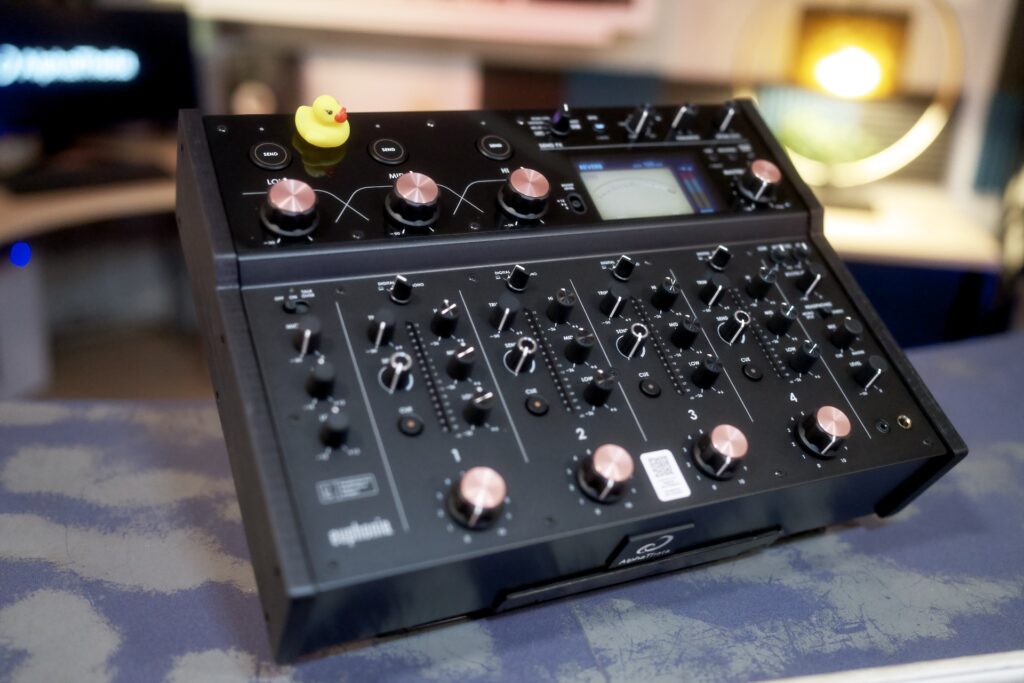
When using a rotary, you’re often signing up for a device that doesn’t give you the technological benefits enjoyed by most DJs, such as onboard USB sound cards, high resolution screens, or digital inputs for modern DJ decks. AlphaTheta aims to fix this problem by offering a hybrid analog/digital rotary mixer.
The euphonia is the first mixer released under the AlphaTheta name, and in fact, is the company’s first ever rotary (including Pioneer DJ mixers). It’s a simple, intuitive, and classy four channel hardware mixer with an extreme focus on sound quality – both in terms of the way it internally mixes tracks together, and the overall sound output. On top of the way it sounds, the euphonia is meant to feel special. As a matter of fact, the rotary faders literally feel different – by design – depending on how hard you turn them. There is a high-quality display, but it’s fairly small and minimalist, displaying an emulation of multi-channel analog VU meters.
The sides are made out of painted wood, the knobs are finished in copper trim, and glossy surfaces meet up with matte finish. It has FX (but only a few), while providing a Send network for you to add your own. The overall design is delightfully un-fussy, and embraces the hybrid nature of this mixer. One thing I really like about the release of the euphonia is, actually, the fact that it’s being produced by one of the biggest names in DJ hardware. Often, DJs who prefer rotaries have to resort to older, out-of-warranty products, or they are bespoke designs from smaller companies. The fact that it’s produced by the same company who makes the most popular club mixers in the world gives a bit of purchasing confidence, then committing to a piece of hardware that costs $3799.
Sound Character
Of course, it’s difficult to describe sound quality and character in a blog post or video, but here is what you need to know:
● The euphonia is highly focused on sound quality.
● It contains a higher-grade DAC than even the DJM-V10.
● It’s a digital/analog hybrid. All sound ultimately passes through an analog transformer circuit (Rupert Neve Designs).
● Rupert Neve was a legendary maker of analog audio circuitry and mixing desks, used by artists and sound engineers around the world. Those guts have made it into this mixer.
● The intent is to add analog harmonics and “warmth” to the entire mix output, while filling in the gaps between tracks & creating a sense of unity.
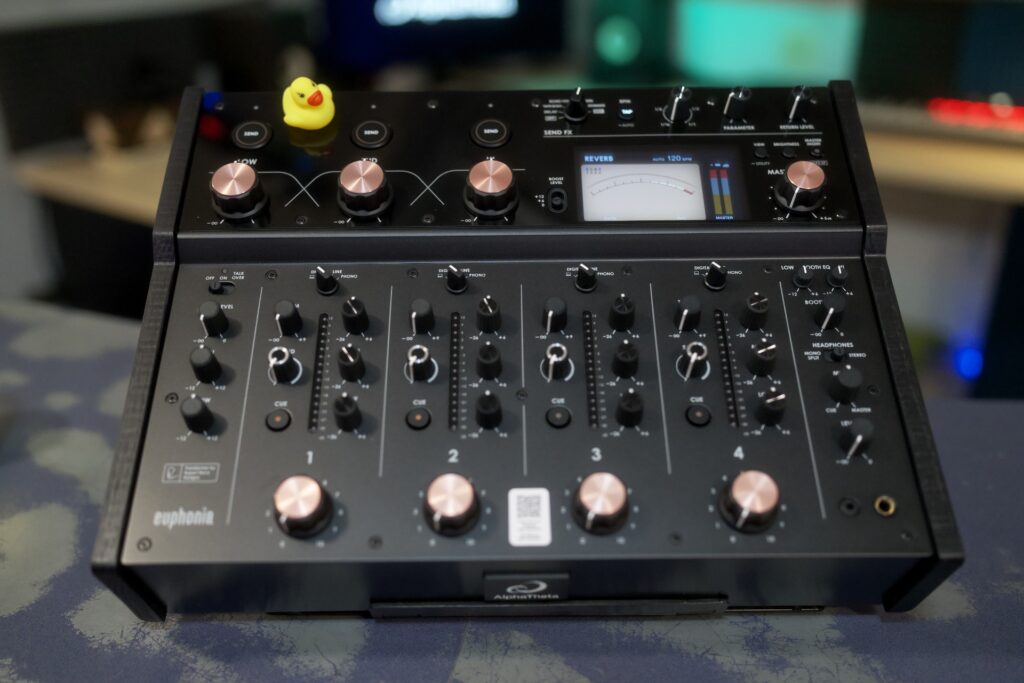
Features & Layout
● Knob feel varies depending on rotation speed
● Isolator
● “Energy Visualizer”: emulates a multi-needle VU meter & spectrum analyzer in one.
○ Perfectly demonstrates the analog/digital “hybrid” nature of this mixer.
● Access to the utility menu.
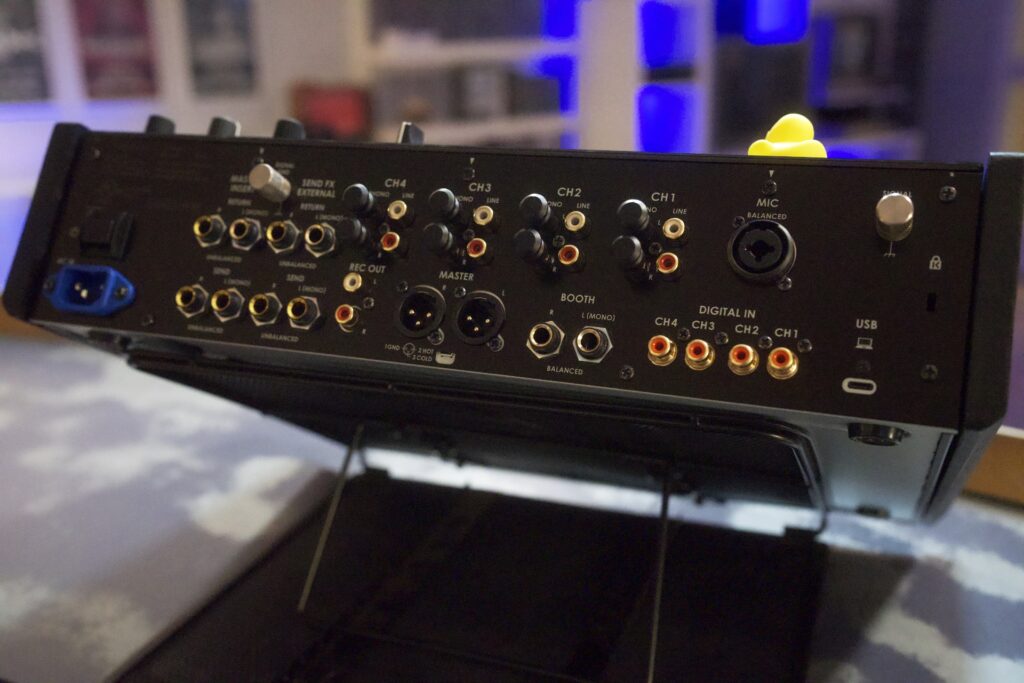
FX/Send
● FX aren’t a huge focus, unlike a club (DJM-A9) or scratch (DJM-S?) mixer.
○ “Essential” selection; variations on reverb & delay
● 5 onboard FX + high-pass filter
● Easily accessible Send on each channel + Master Insert
● Isolator Send
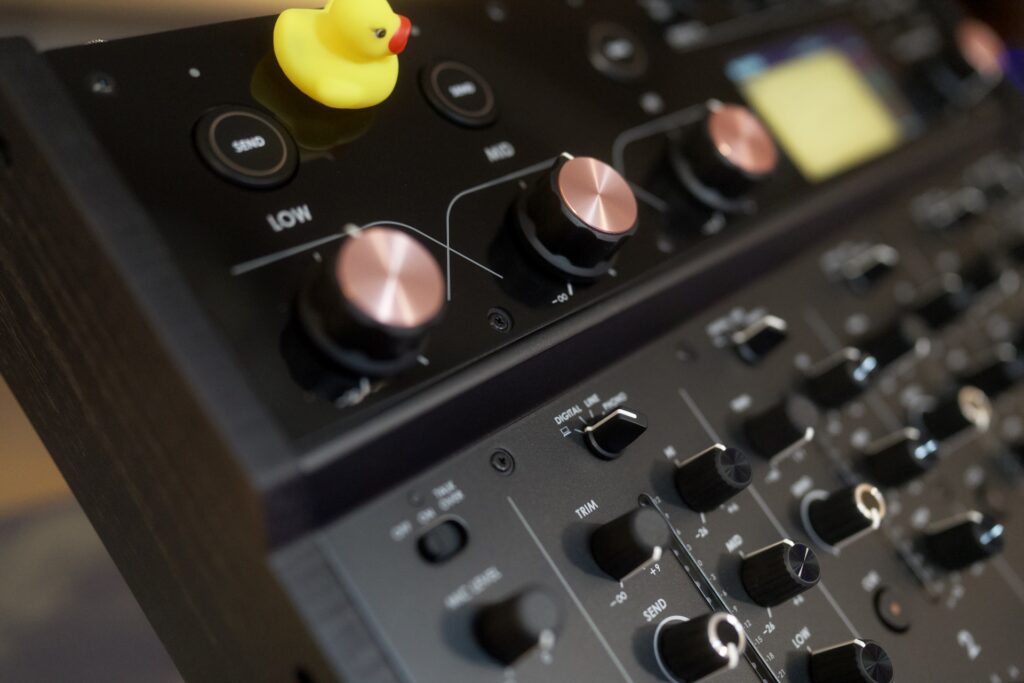
Who It’s For
At the end of the day, the euphonia is a niche product. You either like rotary mixers, or you don’t – and this review wasn’t written to convert anyone. If you found this video, you’re almost certainly not cross-hopping the euphonia with a DJM-A9 or a XONE:96. You’ll be comparing it to one of the high-end “boutique” rotary mixers already on the market, or some old-school kit from back in the day.
What I can tell you is that the euphonia sounded very pleasing to my ears, and added a noticeable pleasing color to the music that wasn’t present when compared to a “normal” digital DJ mixer. And, the euphonia brings something to the table that all those other boutique rotaries don’t: playability. A rotary mixer usually comes with some level of compromise (mostly due to their analog nature).
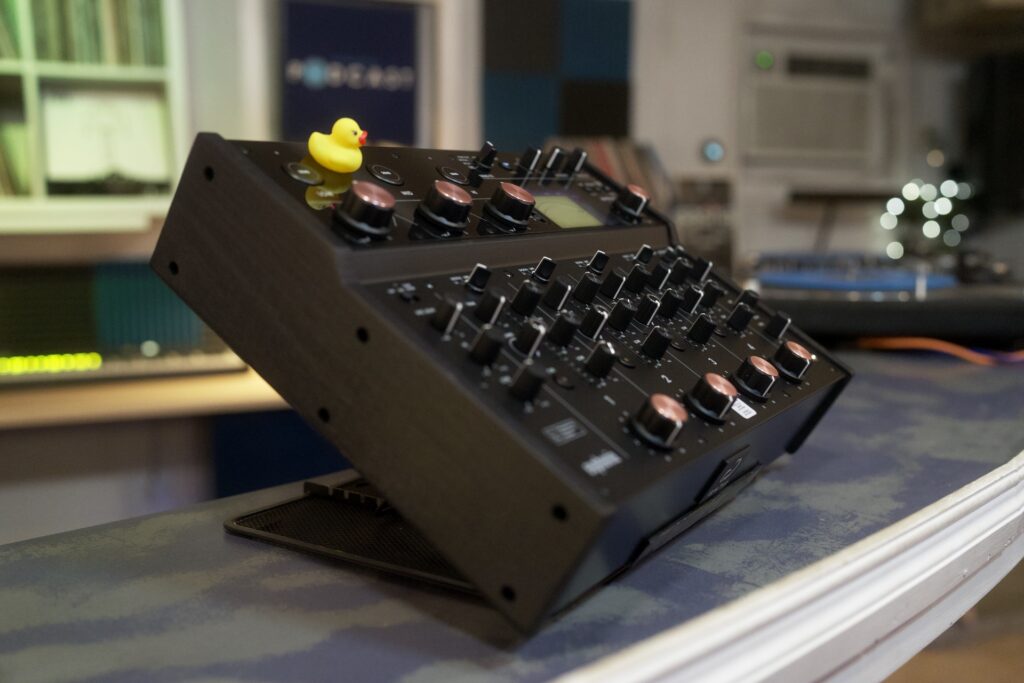
AlphaTheta has released a mixer that doesn’t require you to give up the convenience and usability of a digital setup, while still having a pleasing analog warmth added to the entire mix bus. You can plug it in to your laptop with a USB-C cable, or connect it to CDJ-3000s with digital connections, and get the best of both worlds. And that hybrid nature of this mixer is what makes it so appealing. You get to have your cake and eat it too.
So if you are already sold on the idea of rotary mixers, and you want to know if I think the $3799 price tag is worth it? In my opinion, yes. It looks, feels, and performs like the pro-level piece of hardware it is, and it has all the modern connectivity options I need.
If the rotary feel is what you’re after, but not necessarily the super high-quality sound “guts”, you might try to find a Rane MP2015. Just be aware that it’s a digital mixer, and you don’t get that extra “fizz”.
Your Turn
We put a lot of love into these reviews to serve you, our friends, and the global community of DJs.
If you found this useful, please support by
- Sharing this post on your socials (or texting it to another DJ who’ll benefit)
- Leaving a comment below with what you’re most excited about the AlphaTheta euphonia (or why it’s still not what you’re looking for)
- Subscribing to the Passionate DJ Podcast
- And if you are looking to pick up one of the AlphaTheta euphonia (or any other gear), consider purchasing from The DJ Hookup, which makes this possible. Ask us for the below-advertised pricing and we’ll be happy to hook you up!
Looking to pick up a AlphaTheta euphonia (or other dj gear)?
Let us hook you up.
Click here & ask us for discounts and best deals!
Great review, one question, can you share details of the mixer stand as I have just purchased this mixer and can see the benefit now I having it angled, thanks.
Everyone loves an unbiased review from an ‘un-incentivised’ AlphaTheta reviewer
Question: If one were to route another mixer (eg: Tractor Control, Rane One) through a Euphonia channel, would that mixer’s output be effectively improved? Put another way, is there any real difference between plugging in a CDJ or turntable to plugging in a controller? You could have a mate scratching on the Rane One whilst you play CDJs and Vinyl on the other channels.
I know it’s a weird one, but I’ve often wondered about running “curiosities” (synthesisers, controllers) via a channel on a high end mixer (I have Mastersounds Radius 4) and how the sound may be affected. In my day-to-day case, if my Rane One is routed via the Mastersounds mixer (as a post-mixer) to the speakers, I wonder how that impacts the feel and audio quality of my music..? Curious to know what others think and do.